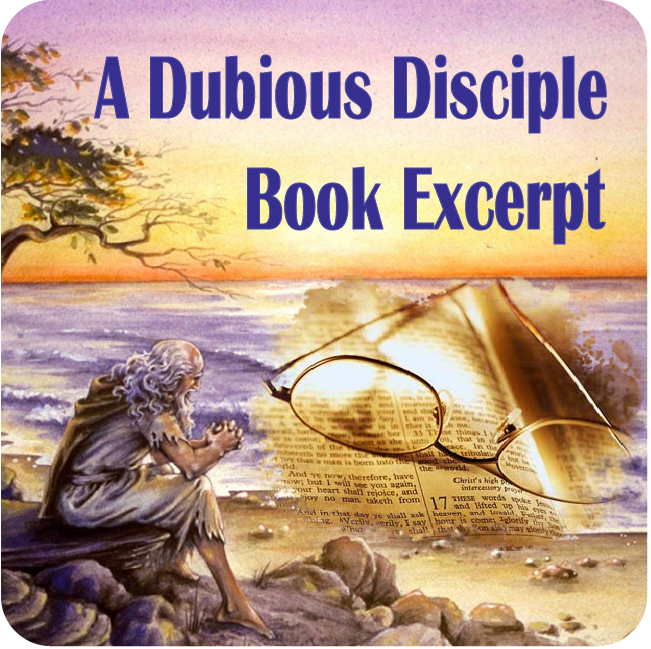The word “gospel” means “good news.” Jesus says his message is good news—not to the prosperous, but to the poor. Not to the happy, but to the brokenhearted. Not to the slave owner, but to the captive. Not to the seeing, but to the blind. Jesus himself says the reason…
Category: Book Excerpt

Book Excerpt: Life After Death, Powerful Evidence You Will Never Die
by Stephen Hawley Martin How do we believe? I reviewed this book a couple days ago, and obtained permission to print the following excerpt. Its relevance to religion, and life after death in particular, should be recognizable. pp 140-141 For years, Drew Westen, a psychologist at Emory University, has been…

Book Excerpt: Revelation: The Way It Happened
I watched as he opened the sixth seal. There was a great earthquake. The sun turned black like sackcloth made of goat hair, the whole moon turned blood red, and the stars in the sky fell to earth, as late figs drop from a fig tree when shaken by a…

Book Excerpt: The River of Life
I find that many liberal Christian authors avoid the topic of prayer, not knowing quite how to handle it or explain it, so let me tell you what works for me. I pray not to the creator/Father, nor to God’s incarnational version, the human/Son, but to the third part of…

Book Excerpt: John’s Gospel: The Way It Happened
“‘Without wine there is no joy,’” Matthew quoted a rabbinic saying. He still stared over the wall. “Your tale speaks truly, if it is meant as a parable of today’s age. Remember what Isaiah prophesied? ‘The new wine dries up and the vine withers; all the merrymakers groan.’ And do…

Book Excerpt: The River of Life
In the Bible, the Spirit is associated with creation. In Genesis 1:2, the wind/spirit/breath-of-God blows across the deep. Thus the wind provides an excellent picture of the Spirit, roaming the earth. Breath is merely wind inside us. To be “born of the Spirit” means to be created anew, embracing the…

Book Excerpt: The River of Life
The apostle Paul is particularly excited about the Spirit in his letters. He writes to the Galatians that they are no longer under the law (the prior age) but under the Spirit’s direction (the new age). The Spirit produces new fruit in our lives, he said: love, joy, peace, longsuffering,…

Book Excerpt: The River of Life
In my mind, the nature of Christ’s second coming is inextricably intertwined with the nature of his resurrection. Resurrection is key, as every Christian agrees. If there were no resurrection, there would be no Christianity. So what is the nature of Jesus’ resurrection? Did he simply disappear from this earth,…

Book Excerpt: The River of Life
With heaven and hell relegated to a minor role, what are we supposed to look forward to? One important difference between liberal and conservative theology is the manner in which the two sides view Jesus’ second coming. Conservatives can hardly be criticized for being future-minded. They imagine a glorious day…

Book Excerpt: The River of Life
Now as [Jesus] was going out on the road, one came running, knelt before him, and asked him, “Good Teacher, what shall I do that I may inherit [aionios] life?” This man isn’t asking how to go to heaven when he dies. He is asking about the new world that…